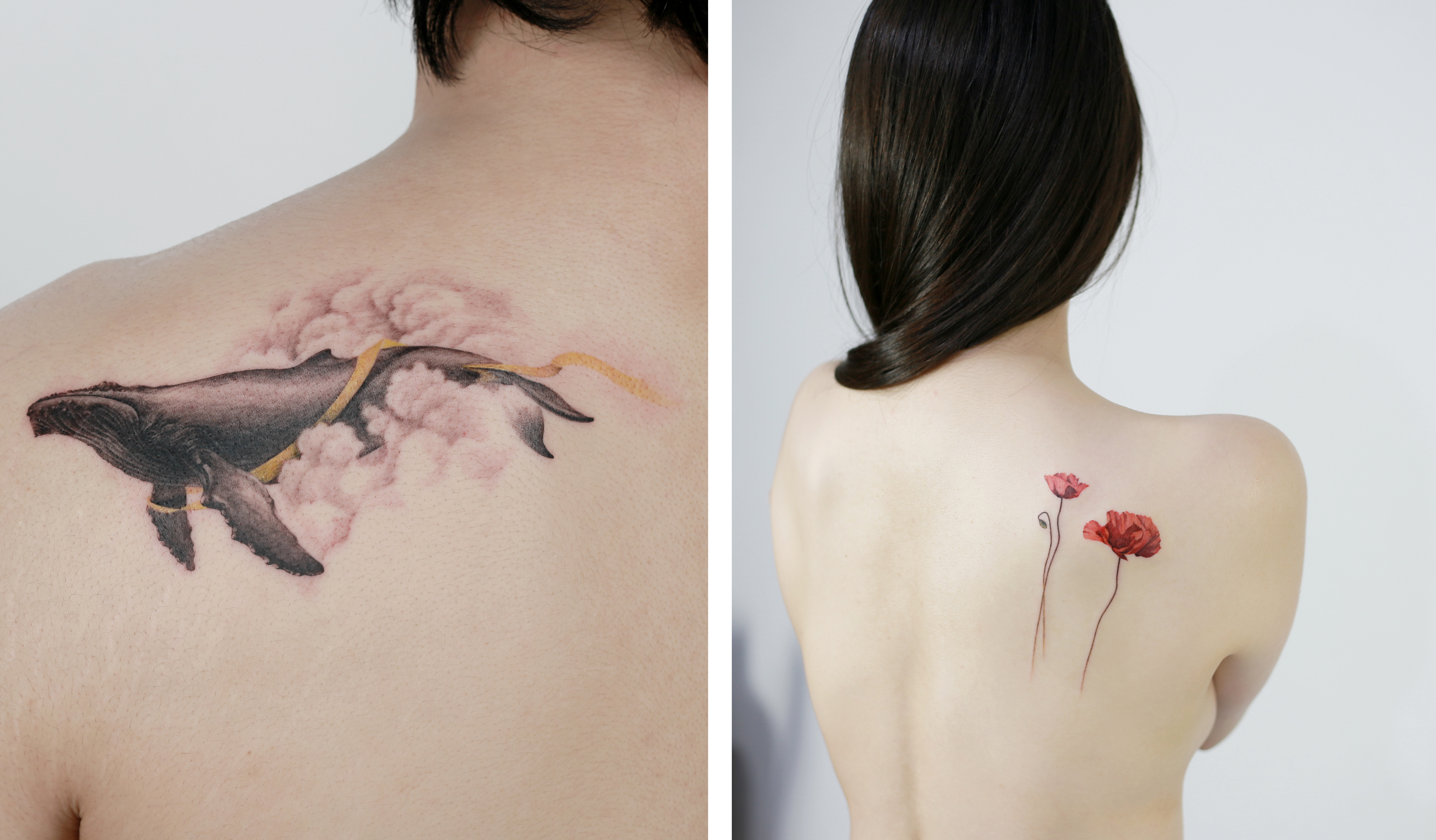SEOUL — South Korea’s Constitutional Court upheld a ban on tattooing on Thursday, in a decision that frustrated many of the country’s tattoo artists and ink lovers.
For years, tattooists have sought to challenge a law allowing only medical professionals to perform the procedure, saying it effectively turns them into criminals.
Videos by VICE
But the court ruled in a 5-4 vote that the legislation was constitutional, confirming South Korea as the only developed nation where tattoo artists’ work is illegal. The verdict said tattoo artists lack the medical qualifications to properly treat their customers before and after the procedure.
A union of some 650 tattooists has condemned the ruling.
“It’s almost a joke, farcical enough to make people laugh,” said union head and tattoo artist Kim Do-yoon, better known as Doy, who has inked K-pop stars and Hollywood celebrities including Brad Pitt and Lily Collins.
“It’s a way more pathetic sentencing than we expected it would be,” Kim told VICE World News. “They’ve convinced no one that tattooing is a medical activity. Nobody thinks that way.”

At least six artists have been sentenced to prison, usually for two years, since April last year, according to a survey carried out by the union. Kim was himself handed a $4,100 fine in December after a YouTube video of him tattooing a Korean actor went viral. He has vowed to fight the penalty.
South Korean ink lovers say the country’s law on tattooing fails to catch up with the growing demand and popularity of the art, especially among young people. A Gallup Korea poll last year suggested that four in five South Koreans in their 20s supported lifting tattooing restrictions. Overall, 51 percent of respondents backed the trade, while 40 percent were against it.
“The law doesn’t reflect reality. The number of people who get tattooed is growing quickly. People want to get tattooed by tattooists, not by doctors,” Lim Bo-lan, director of the Korea Tattoo Federation, told VICE World News. She said she would organize a demonstration next month to call for the total legalization of tattooing.
Tattooing by non-medical practitioners has been illegal in South Korea since a 1992 Supreme Court decision defining tattooing as a medical service. In 2016, the nine-judge panel of the Constitutional Court upheld the ban in a 7-2 vote.
The country’s medical associations have long argued that only qualified medical professionals should carry out the procedure because it could be dangerous.
In upholding the law, the Constitutional Court said tattooing could cause infections and other complications, but Lim argued that safety could be improved by training.
There’s also taboo associated with tattoos in the country, as ink was historically used to permanently mark criminals and slaves. It later acquired a criminal connotation as gangsters openly adorned themselves with tattoos to show off their gang affiliation.
To this day, performers are required to cover up their tattoos when appearing on television. For example, BTS member Jungkook wears long sleeves and a bandage to cover up his body art on TV.
The ban on non-medical tattooists has created a thriving underground industry. At least 1 million South Koreans have tattoos, according to the Korea Tattoo Association.
Lim said that even some medical clinics secretly hired tattooists to carry out the procedure for them.
“Doctors can’t do art and don’t want to do it either,” she said.
While having tattoos has been similarly stigmatized in the rest of East Asia, Japan’s top court ruled in 2020 that tattoo artists in the country no longer needed a medical license to run their business. However, the public display of body art in the country remains controversial because of tattoos being associated with yakuza—Japanese gangsters.
Follow Junhyup Kwon on Twitter.






